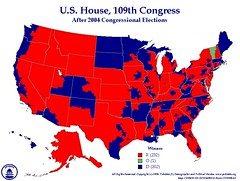Be prepared: a motto for activists, not just the Boy Scouts..

I am working through the papers on Hurricane Katrina that I mentioned yesterday. There is a lot to mine here. Something I said yesterday in the transit extension to BWI Airport piece yesterday, and discussed yesterday in a set of private emails is about seizing the moment to push forward your own agenda when the fire is hot. When people aren't prepared, you can't take advantage of circumstances, and you flounder. This relates to laying out and pushing forward the expansion of rail in Montgomery and Prince Georges Counties, as well as rail across the Wilson Bridge into Alexandria...
This comes from rueful experience.
1. We are talking right now about a development case that will result in the demolition of 15 buildings, houses mostly (one is a fabulous stable), although zoned commercial--all likely date from the 1860s to about 1895.
I have been arguing that neighborhoods need to create their own planning agenda and plans and preservation plans. One aspect should be the identification of all nuisance properties and vacant lots and the development of a set of preferred responses for each.
In a situation where you have 15 buildings to be destroyed, what prevents us from requiring that they be saved by moving them to otherwise empty lots? The area north of H Street and south of New York Avenue, east of the Union Station railyard to the Anacostia River has many many empty lots. But we lack a plan of attack for putting houses back on these lots.
Now we have the opportunity and not the time and plan to be able to move forward.
2. Those of us in the know knew that the Washington Post was preparing a set of articles about the relative ineffectuality and misuse (although often legal, cf. Ken Lay, Bernie Ebbers, etc.) of resources by DC's community development corporations.
See:
- Federal Money Flowed With Little Oversight: City Promises to Cut Off Ineffectual Groups
Carol D. Leonnig; The Washington Post; Feb 24, 2002; pg. A.13
- D.C. Revitalization Promised, Not Delivered: Nonprofits Collect Millions as Work Goes Undone, Neighborhoods Left With Eyesores
Carol D. Leonnig Marcia Slacum Greene and Yolanda Woodlee; The Washington Post; Feb 24, 2002; pg. A.01
- Risky Ventures, Little Accountability: After Years of Public Funding, Nonprofits Have Completed Few Projects
Marcia Slacum Greene Yolanda Woodlee and Carol D. Leonnig; The Washington Post; Feb 25, 2002; pg. A.01
-Blighted Sites May Revert To D.C.: Revival Has Stalled Under Nonprofits
Carol D. Leonnig and Yolanda Woodlee; The Washington Post; Feb 26, 2002; pg. B.01
-$100 Million Down the Drain [Editorial]The Washington Post. Feb 28, 2002. pg. A.22
But we didn't prepare in advance to be able to respond, we didn't have a plan to try to change things. And we didn't. Business stays usual. And these same organizations soundly whupped in the Post articles received an award for how great they are from the DC Building Industry Association last May.
Had we been prepared and thought things through, we could maybe have changed things. Instead...
So that gets to the article "Katrina and Power in America" by Peter Drier, and this section:
We cannot expect a major disaster—whether the Los Angeles riots or the Katrina disaster—to trigger a national debate over cities. Disasters, accidents, scandals, and other unexpected events suchWatergate, Enron, and the Santa Barbara oil spill often expose the things we take for granted (Molotch 1970). They force us to hold a mirror up to society and see it as it really is. The public is often shocked at the human consequences of such events. They tell pollsters that government officials need to “do something” to address the problem. They often lead to a shift in public opinion. But these events are rarely, on their own, catalysts for social change or major policy shifts. The immediacy of the tragedy soon recedes and people return to business as usual. The media soon loses interest when the political drama fades and the mundane tasks of recovery take over. The root causes and the chronic human suffering get pushed aside by stories about government turf battles and bureaucratic bungling, undermining public confidence in the capacity of government to solve problems (Dreier 2005).
What generally brings about positive change—especially for poor and working-class people—is the slow, gradual, difficult work of union organizing, community organizing, and participation in electoral politics....
Professor Dreier's article is probably the best out there right now on summarizing the current political and social conditions impacting U.S. center cities today, especially the relationship between the federal government and cities. Read it!

At almost the same time that I created this blog, I created another one, Urban Agenda, designed to get a candidate to run in the presidential primaries on a pro-city campaign agenda. Not to win, but to lay out "our" issues. It was always intended to be a group blog. I don't even have the time to spend taking care of this blog... (e.g., I index entries, but I haven't been updating the del.icio.us site, because I find it tedious, and I toy with the idea of paying somebody to do it...). But I haven't found others to help take on the job. One of the people who helped spark the Urban Agenda idea has an architecture blog of his own that keeps his hands full, plus teaching, writing, etc...
Clearly, the Dreier article shows the need to take this idea up again...
 Image from Polidata.
Image from Polidata.Index Keywords: community-organizing; civic-engagement; urban-revitalization



0 Comments:
Post a Comment
<< Home